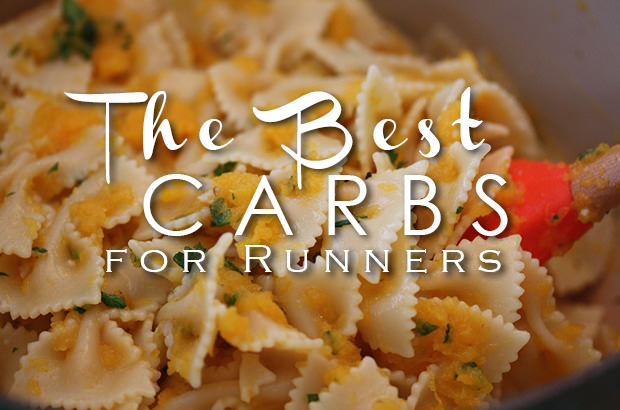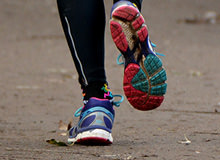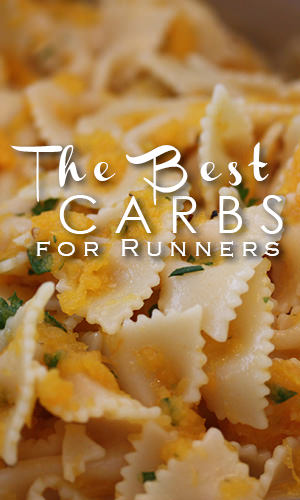
The Best Carbs For Runners
Posted on 23 Jun, 2019

Carbs have gotten a bad rep in recent years and have been named as the primary reason for an overweight society. What we fail to realize is that most of these research findings are targeted at the sedentary, not those with the physical requirements of an endurance runner.
This has left many of us second guessing our eating habits, and excluding from our meals the most critical energy source for our body. Restricting carbs can cause your muscles to feel needlessly fatigued, compromising the quality of workouts and the benefits you reap from it.
Sports nutrition experts generally recommend that runners get approximately 60 percent of their daily calories from carbohydrates. Technically speaking, 1 gram of carbohydrates will always equal 4 calories. But certain carb-rich foods, because of their overall nutritional composition, pack more benefit than others.
A healthy diet for runners not only fuels, but prevents injuries and nutritional deficiencies. The following are the top carbohydrate sources for runners.
Bananas

Bananas have long been a favorite of endurance athletes mainly for its fast digesting carbs, low glycemic index, and its glowing potassium credentials. One large banana provides 31 grams of carbs. Its high potassium content is crucial for muscle contraction, heart function and staving off muscle cramps.
Berries

Berries are among the most nutritious sources of carbohydrates. They are rich in vitamins, minerals, and antioxidants. Antioxidants help counteract the increase of free radicals produced while running, and berries like acai, blueberry, cranberry, maqui and aronia have among the highest concentration of antioxidants of any other fruit.
Wild Rice

Rice is among the richest sources of carbohydrates. Less refined grains have more fiber and they break down more slowly for a more steady release of energy. They also contain more vitamins and minerals than refined rice. So while white rice is a good source of carbs, brown rice is better, and wild rice is the best. Wild rice also has 50 less calories than brown rice, and almost 100 calories less than white rice.
Plain Yogurt

Plain yogurt is a good source of carbohydrates and protein, making it great for athletes as it promotes glycogen replenishment and muscle recovery. Yogurt also provides gut-healthy probiotics that aid digestion. The more efficient your body is in digesting your food, the more energy you will have for other things.
Whole Wheat Pasta

One cup of whole-wheat spaghetti provides 37 grams of carbs. As with other grain-based foods, whole-grain pasta supplies more fiber, vitamins, minerals and essential fatty acids than refined pasta. To avoid craving a second pasta portion, add in some protein (chicken, fish, or ground meat) to keep you full.
Oatmeal

Oats are easy to digest and provides a hearty amount of carbs. One half cup gives you 54 grams. The high fiber content in oats also slows glucose absorption into the bloodstream, which helps you maintain peak energy levels and curb appetite. Oatmeal is also perfect for fighting fatigue because it contains protein, magnesium, phosphorus, and vitamin B1, all nutrients that help boost energy levels.
Lentils

Chock full of fiber and complex carbohydrates, lentils provide the body with steady, slow-burning energy. They are also a wonderful source of iron, which transports oxygen throughout your body and is key to energy production and metabolism.
Sweet Potatoes

As sweet as they are, sweet potatoes, unlike other starchy foods, have a low glycemic index, and supplies the body with a steady amount of energy, which to a long distance runner is essential. They are also full of manganese, which helps the body metabolize carbohydrates, further improving its potency.
Understanding Glycemic Index
The rate at which carbohydrates raise blood sugar and consequent insulin is measured by glycemic index. Foods with a high-glycemic value are those that are quickly broken down and enter the bloodstream rapidly, leading to a spike in blood glucose and the release of insulin.
In contrast, low-glycemic foods, which tend to be higher in fiber or contain protein, are slow to digest and take longer to be converted into glucose. As a result, less insulin is needed to regulate blood sugar.
Timing
It is important that you consume the right carbs at the right time. High-glycemic foods are best during and right after exercise when your body needs fast replacement. Low-glycemic foods, which provide steady, sustained energy levels, should be consumed throughout the day and before a run.
How much carbs should I consume?
According to the Academy of Nutrition and Dietetics, the amount of carbs you require each day depends on your body weight and the intensity and duration of your runs. Based on their recommendations, you should consume 2.3 to 3.2 grams of carbs per pound for light to moderate training that last less than one hour, 3.2 to 4.5 grams per pound for heavy training at high intensity and 4.5 to 5.5 grams per pound of body weight each day when running longer than four to five hours.
Photo Credits
Great Books On Nutrition For Runners

by Joanna Sayago Golub

by Shalane Flanagan

by Joanna Sayago Golub

by Matt Fitzgerald

 A Guide To Buying The Right Running Shoes
A Guide To Buying The Right Running Shoes Core Workouts For Running
Core Workouts For Running The drawbacks of High Intensity Interval Training (HIIT)
The drawbacks of High Intensity Interval Training (HIIT) Reasons Why Running May Not Help You Lose Weight
Reasons Why Running May Not Help You Lose Weight










